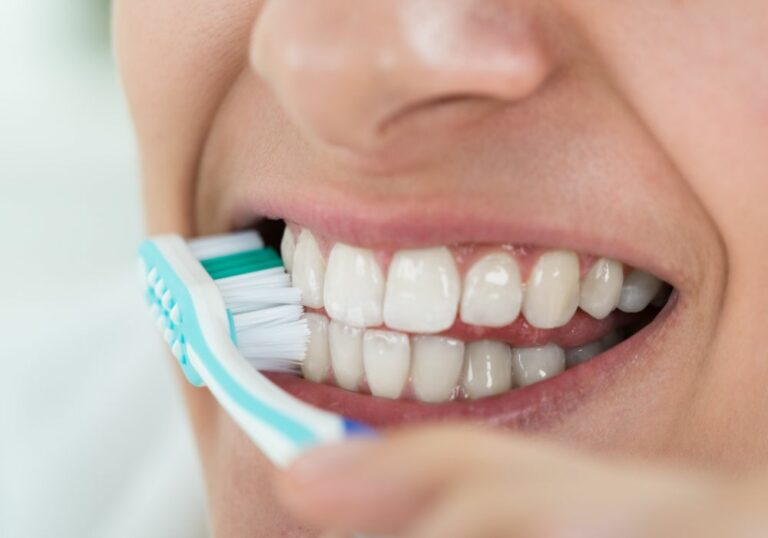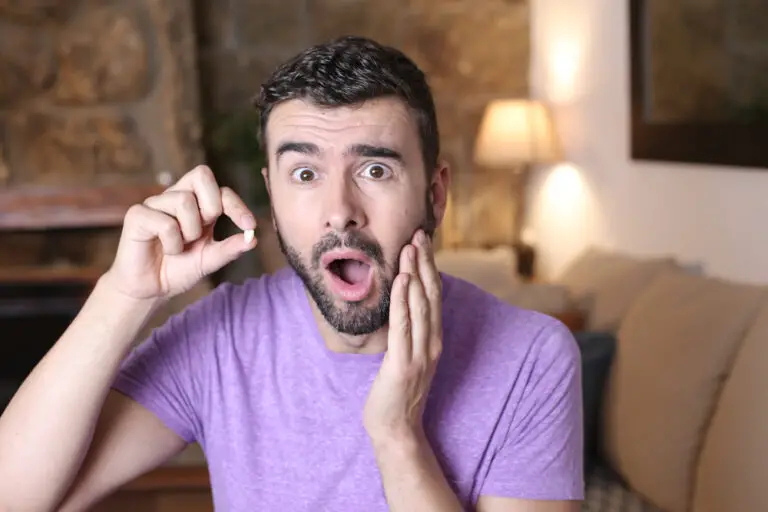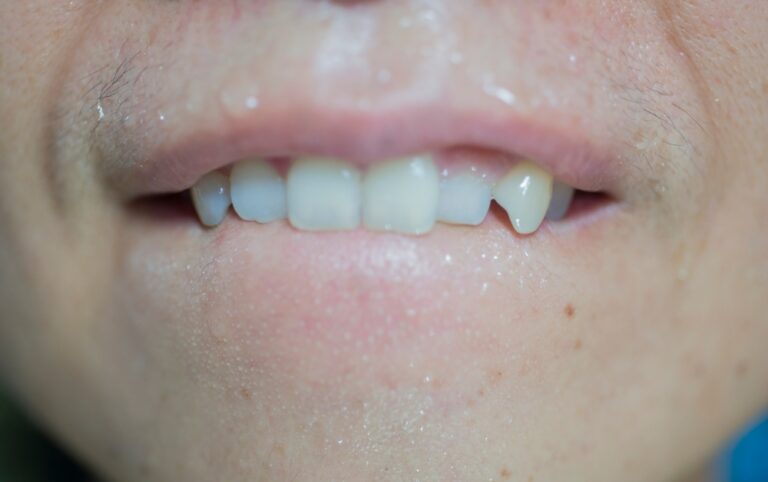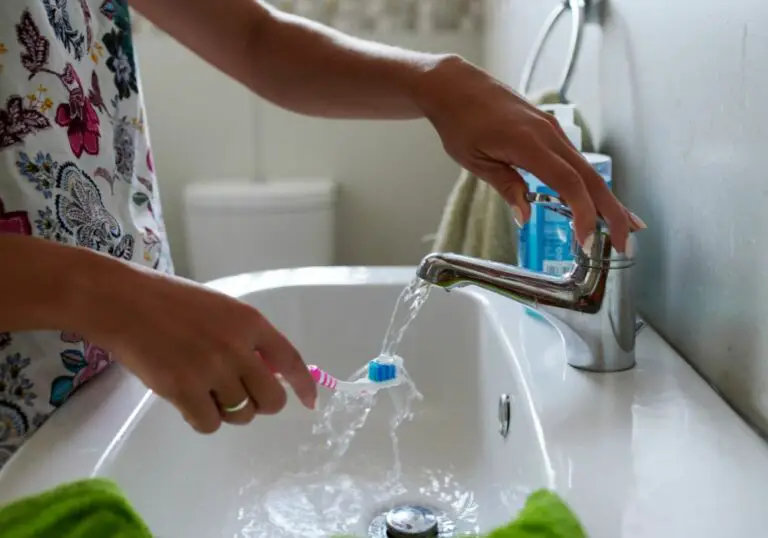If you’ve recently had a tooth extraction, it’s important to take proper care of the area to ensure a quick and easy recovery. One common concern that many people have after a tooth extraction is whether it’s safe to go to sleep if the extraction site is still bleeding. While it’s natural to be worried about this, there are steps you can take to minimize the risk of bleeding while you sleep.
Firstly, it’s important to note that some bleeding after a tooth extraction is normal. However, if the bleeding is excessive or doesn’t stop within a few hours, it’s important to seek medical attention. If your bleeding is under control and you’re able to manage it with gauze, you may be wondering if it’s safe to go to sleep.
The answer is that it depends on the severity of the bleeding and how well you’re able to control it. If the bleeding is minimal and you’re able to keep the area clean and dry, it may be safe to go to sleep. However, if the bleeding is more severe or you’re having trouble controlling it, it’s best to stay awake and seek medical attention if necessary. In the following sections, we’ll explore some tips for managing bleeding after a tooth extraction and how to ensure a smooth recovery.
Understanding Tooth Extraction
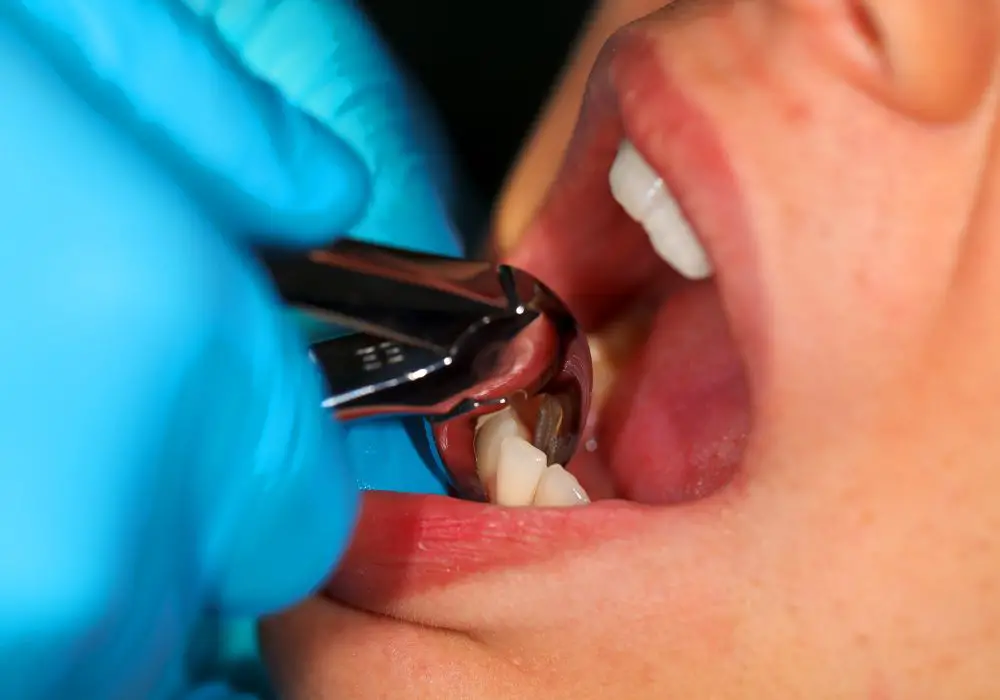
If you need to have a tooth extracted, it’s important to understand what the procedure involves and how to take care of yourself afterward. Here are some key points to keep in mind:
Before the Extraction
Before your tooth is extracted, your dentist or oral surgeon will likely give you instructions on what to do to prepare for the procedure. This may include:
- Avoiding food and drink for several hours before the procedure
- Taking any prescribed medications as directed
- Arranging for someone to drive you home afterward, as you may be drowsy from the anesthesia
During the Extraction
During the extraction, your dentist or oral surgeon will numb the area around the tooth and may give you sedation or anesthesia to help you relax. They will then use special tools to loosen the tooth and remove it from the socket.
If the tooth is difficult to remove, they may need to make an incision in your gum or remove some bone around the tooth. This can cause some discomfort, but you should not feel any pain during the procedure.
After the Extraction
After the extraction, you will need to take special care of the area to promote healing and prevent complications. Here are some tips to keep in mind:
- Bite down gently on a piece of gauze for 30-45 minutes to help stop any bleeding.
- Apply an ice pack to your cheek for 10-20 minutes at a time to help reduce swelling.
- Avoid smoking or using a straw for at least 24 hours, as the suction can dislodge the blood clot and delay healing.
- Eat soft, cool foods for the first few days and gradually introduce solid foods as you feel comfortable.
- Brush your teeth gently, avoiding the extraction site, and rinse your mouth with warm salt water several times a day to help keep the area clean.
By following these guidelines and taking good care of yourself, you can help ensure a smooth recovery from your tooth extraction.
Why Does Bleeding Occur After Tooth Extraction
After a tooth extraction, it is common to experience some bleeding. Bleeding may occur due to various reasons such as:
- Dislodged blood clot: When the blood clot that forms over the extraction site is dislodged, it can cause bleeding.
- Blood thinners: If you are taking blood thinners, you may experience prolonged bleeding after tooth extraction.
- Infection: Infection can cause bleeding and other complications after tooth extraction.
- Dry socket: Dry socket is a condition where the blood clot dissolves or dislodges, exposing the bone and nerves underneath, leading to bleeding.
It is important to follow your dentist’s instructions to prevent bleeding after tooth extraction. Here are some tips to help prevent bleeding:
- Bite down on gauze: Bite down on a piece of gauze for 30-45 minutes after tooth extraction to help form a blood clot.
- Avoid rinsing: Avoid rinsing your mouth for the first 24 hours after tooth extraction to prevent dislodging the blood clot.
- Avoid smoking: Smoking can delay the healing process and increase the risk of bleeding.
- Avoid hot liquids: Hot liquids can increase blood flow to the extraction site, causing bleeding.
- Elevate your head: Keep your head elevated while sleeping to reduce bleeding.
If bleeding persists for more than 24 hours after tooth extraction, contact your dentist immediately. They may recommend additional treatment to stop the bleeding and prevent further complications.
How Long Should Bleeding Last

After a tooth extraction, it is normal to experience some bleeding for the first 24 hours. However, if the bleeding persists beyond this time frame, it is important to take action to prevent further complications.
On average, bleeding after a tooth extraction should stop within 8-12 hours. If you are still experiencing bleeding beyond this time frame, there are a few things you can do to help stop it.
Firstly, avoid spitting or rinsing your mouth vigorously, as this can dislodge the blood clot and prolong the bleeding. Instead, gently bite down on a piece of gauze or a tea bag for 20-30 minutes at a time, changing it as needed.
If the bleeding continues, try applying a cold compress to the affected area for 10-15 minutes at a time. This can help to constrict the blood vessels and reduce bleeding.
It is important to note that if you are experiencing significant bleeding that does not stop with these measures, you should seek medical attention immediately. Excessive bleeding can be a sign of a more serious complication, such as a blood clotting disorder or infection.
In summary, bleeding after a tooth extraction should stop within 8-12 hours. If bleeding persists beyond this time frame, try using gauze, a tea bag, or a cold compress to help stop the bleeding. If bleeding continues or is excessive, seek medical attention immediately.
Can You Sleep While Bleeding
If you have recently had a tooth extraction, it is normal to experience some bleeding. However, you may be wondering if it is safe to go to sleep while still bleeding. In this section, we will discuss the potential risks of sleeping while bleeding and the safety measures you can take to ensure a smooth recovery.
Potential Risks
Sleeping while still bleeding after a tooth extraction can increase the risk of complications. Here are some potential risks to be aware of:
- Swallowing blood: If you bleed while sleeping, you may accidentally swallow some of the blood. This can cause nausea, vomiting, and stomach pain.
- Dislodging the blood clot: When you sleep, you may move your head in a way that dislodges the blood clot that has formed over the extraction site. This can cause the bleeding to continue or even worsen.
- Infection: If the bleeding continues, it can increase the risk of infection. This is because the open wound provides a breeding ground for bacteria.
Safety Measures
To prevent the potential risks associated with sleeping while still bleeding, here are some safety measures you can take:
- Use gauze: Before going to bed, place a fresh piece of gauze over the extraction site. Bite down gently to apply pressure and help the blood clot form.
- Avoid sleeping on your side: Sleeping on your side can increase the risk of dislodging the blood clot. Instead, try sleeping on your back with your head propped up on a pillow.
- Use a towel: To protect your pillow from bloodstains, place a towel over it before going to bed.
- Avoid strenuous activity: For the first few days after the extraction, avoid any strenuous activity that can increase blood flow to the head and cause bleeding.
In conclusion, it is not recommended to go to sleep while still bleeding after a tooth extraction. However, by following these safety measures, you can minimize the potential risks and ensure a smooth recovery.
When to Seek Medical Attention
If your tooth extraction is still bleeding after several hours, it is important to monitor the bleeding and take appropriate measures to stop it. However, if the bleeding persists or becomes heavy, you should seek medical attention right away.
Here are some signs that indicate you should seek medical attention:
- If the bleeding is heavy and does not stop after applying pressure for 20-30 minutes.
- If you are experiencing severe pain that is not relieved by over-the-counter pain medications.
- If you have a fever, chills, or other signs of infection.
- If you notice swelling or pus around the extraction site.
- If you have difficulty breathing or swallowing.
In some cases, bleeding after a tooth extraction can be a sign of a more serious complication, such as a dry socket or infection. These conditions require prompt medical attention to prevent further complications.
If you are unsure whether you need medical attention, it is always better to err on the side of caution and seek advice from your dentist or doctor. They can evaluate your symptoms and recommend appropriate treatment to help you recover as quickly and safely as possible.
Tips to Manage Bleeding at Home
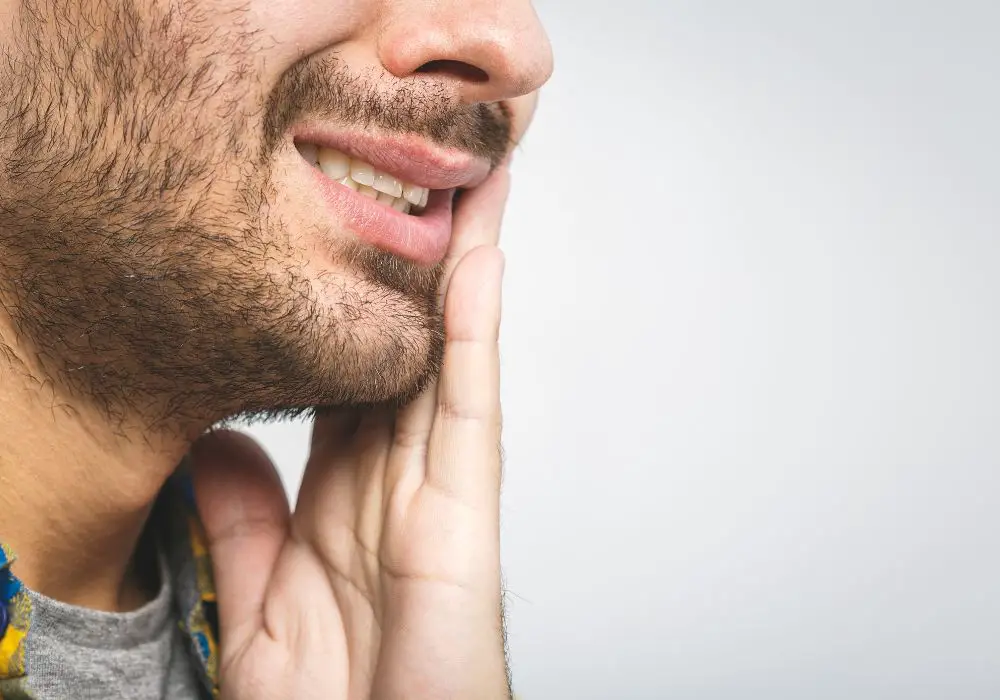
If you have recently had a tooth extraction, it is common to experience some bleeding. While it is important to follow your dentist’s instructions, there are some things you can do at home to manage the bleeding. Here are some tips to help you manage bleeding at home.
Ice Packs
Applying an ice pack to your cheek can help reduce swelling and bleeding. Wrap a bag of ice or a cold pack in a towel and apply it to your cheek for 10-20 minutes at a time. Take a break for 10-20 minutes and then reapply the ice pack. Do this for the first 24-48 hours after your extraction.
Bite on Gauze
Biting down on a piece of gauze can help stop bleeding. Fold a piece of clean gauze into a square and place it directly on top of the empty socket. Bite down gently for at least 30 minutes. Ensure there is direct pressure on the tooth socket. If the bleeding continues, replace the gauze with a new one and continue biting down.
Avoid Certain Foods
Avoid eating or drinking anything that is too hot or too cold. Also, avoid foods that are hard, crunchy, or require a lot of chewing. These types of foods can irritate the extraction site and cause bleeding to continue. Stick to soft foods that are easy to eat, such as soup, yogurt, and mashed potatoes.
Rest and Elevate Head
Resting and elevating your head can help reduce bleeding. Lie down and elevate your head with pillows. This will help reduce blood flow to the extraction site and promote healing. Avoid strenuous activities or exercise for the first few days after your extraction.
Remember, if bleeding persists or becomes heavy, contact your dentist immediately. They may need to take additional steps to stop the bleeding. By following these tips, you can help manage bleeding at home and promote a faster recovery.
Preventing Future Bleeding
If you have experienced bleeding after a tooth extraction, it’s important to take steps to prevent future bleeding. Here are some tips to help you prevent future bleeding:
Follow Aftercare Instructions
Your dentist or oral surgeon will provide you with detailed aftercare instructions to follow after your tooth extraction. It’s important to follow these instructions carefully to help prevent future bleeding. Some common aftercare instructions include:
- Bite down on gauze for at least 30 minutes after the procedure to help the blood clot form.
- Avoid smoking or using tobacco products for at least 24 hours after the procedure, as these can delay the healing process and increase the risk of bleeding.
- Avoid drinking through a straw for at least 24 hours after the procedure, as the suction can dislodge the blood clot and cause bleeding.
- Avoid vigorous rinsing or spitting for at least 24 hours after the procedure, as this can also dislodge the blood clot and cause bleeding.
Maintain Oral Hygiene
Maintaining good oral hygiene is essential for preventing future bleeding after a tooth extraction. Here are some tips to help you maintain good oral hygiene:
- Brush your teeth gently, avoiding the extraction site, for the first few days after the procedure.
- Rinse your mouth gently with saltwater after meals to help keep the extraction site clean.
- Avoid using mouthwash for the first few days after the procedure, as it can irritate the extraction site and delay healing.
- Avoid touching the extraction site with your tongue or fingers, as this can also delay healing and increase the risk of bleeding.
By following these tips and your dentist’s or oral surgeon’s aftercare instructions, you can help prevent future bleeding after a tooth extraction.
Frequently Asked Questions
Is it safe to sleep if my tooth extraction is still bleeding?
Yes, it is safe to sleep if your tooth extraction is still bleeding. However, try to sleep on the opposite side to reduce bleeding. If the bleeding does not stop, you can bite down on a regular black tea bag for 15 minutes to stop the bleeding.
What should I do if my tooth extraction is still bleeding?
If your tooth extraction is still bleeding, you should apply pressure to the area by biting down on a piece of gauze or a tea bag for at least 30 minutes. You can also try applying an ice pack to the outside of your cheek to reduce swelling and bleeding. If the bleeding persists, contact your dentist for further advice.
How long should I wait for bleeding to stop after tooth extraction?
It is normal to experience some bleeding after a tooth extraction, but it should stop within a few hours. If the bleeding persists for more than 24 hours, contact your dentist for further advice.
Can I eat after tooth extraction if it’s still bleeding?
You should avoid eating for at least two hours after a tooth extraction to allow the blood clot to form. Once the bleeding has stopped, you can eat soft foods that are easy to chew, such as soup, yogurt, or mashed potatoes. Avoid hard, crunchy, or sticky foods that can dislodge the blood clot and cause bleeding to start again.
What are some home remedies to stop bleeding after tooth extraction?
There are several home remedies that can help stop bleeding after tooth extraction. You can apply pressure to the area by biting down on a piece of gauze or a tea bag for at least 30 minutes. You can also try applying an ice pack to the outside of your cheek to reduce swelling and bleeding. Drinking black tea or rinsing your mouth with saltwater can also help stop bleeding.
When should I contact my dentist if bleeding doesn’t stop after tooth extraction?
If bleeding doesn’t stop after tooth extraction, you should contact your dentist immediately. They may need to apply additional pressure to the area, prescribe medication to help stop the bleeding, or take other measures to prevent complications.

